Search
Remove Ads
Advertisement
Summary 
Loading AI-generated summary based on World History Encyclopedia articles ...
Search Results
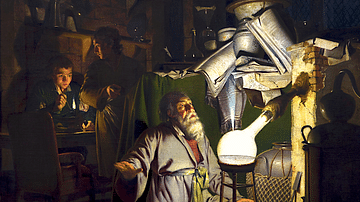
Definition
Alchemy
Alchemy is an ancient practice aimed at recreating precious substances using recipes and transformative materials such as the philosopher's stone. Alchemists believed that materials like gold, silver, gems, and purple dye could be recreated...
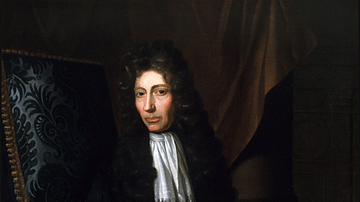
Definition
Robert Boyle
Robert Boyle (1627-1691) was an Anglo-Irish chemist, physicist, and experimental philosopher. Boyle was a prolific author, made significant experiments with air pumps, and presented the first litmus test. A founding member of the Royal Society...
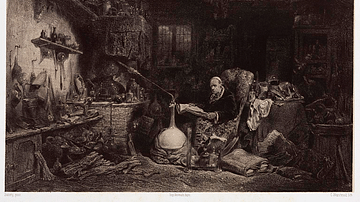
Image
The Alchemist by Nanteuil
A c. 1850 lithographic print, The Alchemist, by Celestin Nanteuil. The figure is in possession of the typical apparatus of alchemy such as a condenser and furnace. (Science Museum, London)

Image
The Alchemist by Wright
A detail of The Alchemist by Joseph Wright of Derby. Oil-on-canvas painted in 1771. (Derby Museum & Art Gallery, Derby, UK)
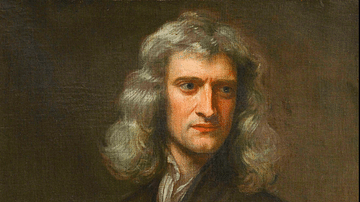
Definition
Isaac Newton
Isaac Newton (1642-1727) was an English mathematician and physicist widely regarded as the single most important figure in the Scientific Revolution for his three laws of motion and universal law of gravity. Newton's laws became a fundamental...

Article
Game Review: A Plague Tale: Innocence
A Plague Tale: Innocence is a true masterpiece of interactive storytelling. The video game (console versions on Amazon, PC version on Steam) takes the player back to medieval France. The country is troubled by both the Hundred Years' War...

Image
The Alchemists by Pietro Longhi
A 1757 oil-on-canvas painting, The Alchemists, by Pietro Longhi. (Ca' Rezzonico, Venice)
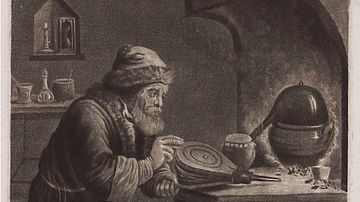
Image
The Alchymist by Baillie
A 19th-century print titled 'The Alchymist', after Teniers, by W. Baillie. The alchemist is using bellows to increase the temperature of the furnace which is heating a condenser. (Science Museum, London)
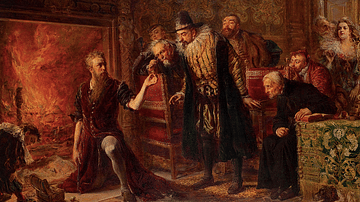
Image
The Alchemist Michael Sendivogius
An 1867 painting showing the Polish alchemist Michael Sendivogius (1566-1636) by Jan Matejko. (Museum of Art in Łódź, Poland)

Definition
Scientific Revolution
The Scientific Revolution (1500-1700), which occurred first in Europe before spreading worldwide, witnessed a new approach to knowledge gathering – the scientific method – which utilised new technologies like the telescope to observe, measure...